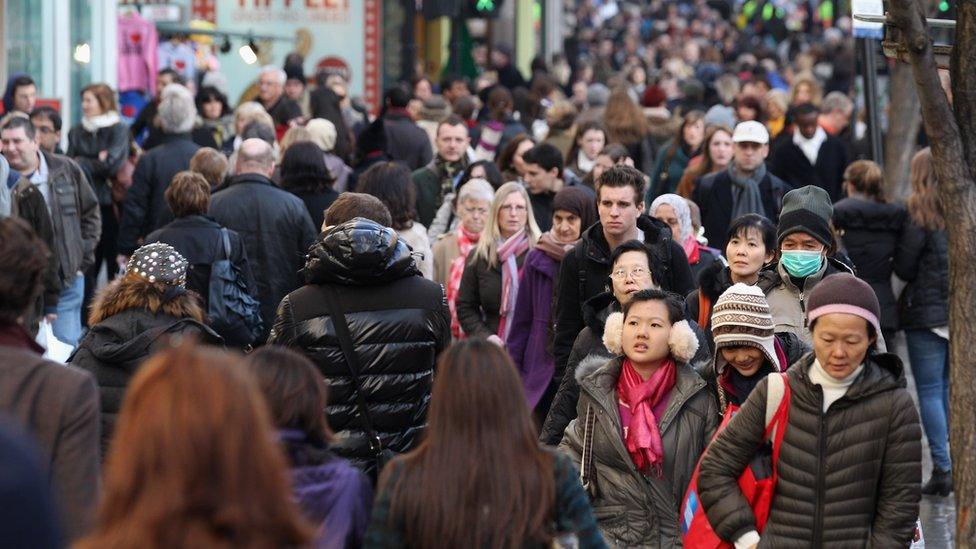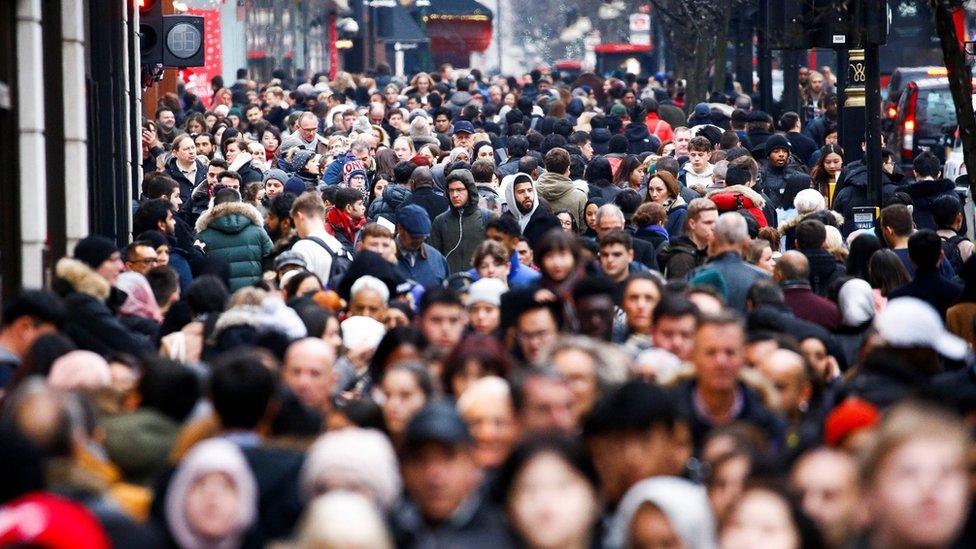Brexit: Bosses seek cut to immigrant salary threshold
- Published
- comments

The next prime minister should lower the salary threshold for foreign workers in the UK from £30,000 to £20,000, a group of business and education bodies has said.
They say that such a move would help to avoid "acute" skills shortages.
Currently any non-EU citizen working in the UK must earn at least £30,000, but under current proposals this will be extended to EU citizens after Brexit.
The Home Office said it was still consulting on the plans.
The extension of the threshold was proposed in last year's Immigration White Paper, which set out the government's vision for a post-Brexit immigration system.
However, the coalition - including the British Retail Consortium, business advocacy group London First, Universities UK, and UK Hospitality among others - warned that more than 60% of all jobs in the UK were currently beneath the £30,000 cut-off.
"It is vital that the government does all it can to keep the country at full strength at a time of great uncertainty. The thousands of businesses we represent are clear that without a bold move now on immigration reform, the skills shortages many companies face risk becoming even more acute," said Jasmine Whitbread, chief executive at London First.
The coalition also called for more generous temporary and post-study work visas, following curbs in recent years to lower immigration.
"Without the ability to access international talent, many of our world-class sectors are at significant risk," they said in a letter to both prime ministerial candidates.
"As the UK prepares to leave the EU in the near future, it is imperative that the government puts in place measures that will avoid employers facing a cliff-edge in recruitment, and works towards building a successful economy that is open and attractive."

A government target of net migration under 100,000 a year has never been met`
Foreign Secretary Jeremy Hunt - considered the underdog in the race to be the next leader of the Conservative Party - has said he would review the £30,000 salary threshold, while prioritising skilled workers.
The frontrunner to take over from Theresa May, Boris Johnson, has called for a new Australian-style points-based system.
This would consider factors such as whether an immigrant has a firm job offer and their ability to speak English.
Both men also oppose the government's target of bringing net migration down to under 100,000 people a year, which has never been met.
According to the Migration Observatory, a think tank, the government is already issuing waivers to allow essential workers to bypass the £30,000 cut-off.
Recent figures gleaned from freedom of information requests show that, despite Home Office rules, 90% of nurses, half of all medical radiographers, 10% of paramedics and a third of secondary schoolteachers earn below the minimum.
A Home Office spokesman said: "Our new skills-based immigration system is designed to attract the talented workers we need for the economy to continue to prosper, while also delivering on the referendum result following the end of free movement.
"We know there are a range of views about salary thresholds, and the home secretary has asked independent experts to advise on this issue before the proposals are finalised next year.
"The new system will reduce the burden on businesses by streamlining and simplifying our sponsorship system and we will create a new temporary work route to allow UK companies access to the employees they need to thrive."
- Published19 December 2018

- Published28 February 2019
